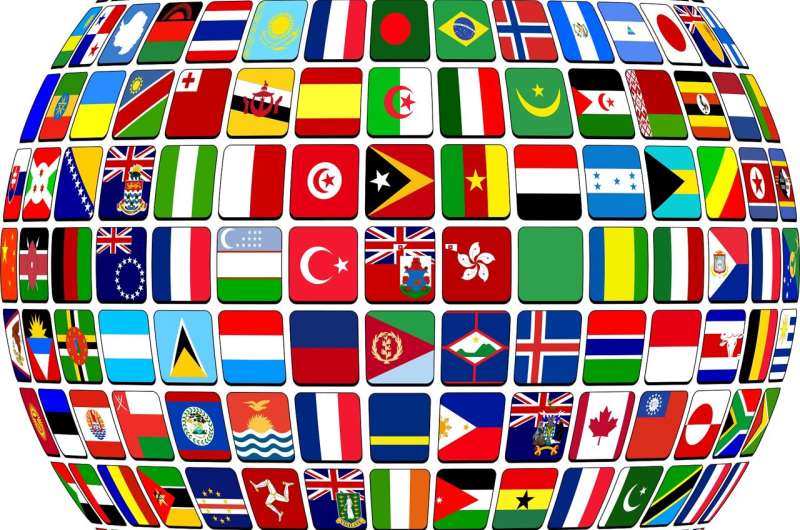Chinese prefer Europeans to Americans, but feeling isn’t mutual, says study

People in China have more favorable opinions of Europeans than Americans, but the feeling is not mutual, according to a new study from researchers at Rice University, the National University of Singapore and the University of British Columbia.
“Unpacking ‘the West’: Divergence and Asymmetry in Chinese Public Attitudes Towards Europe and the United States” shares findings from two public opinion surveys of more than 2,000 adults living in China, conducted by the research team. The authors compared their findings with two recent Pew Research Center surveys of citizens of 14 developed economies, including the U.S. and several countries in Europe.
In addition to more favorability toward Europeans over Americans, Chinese opinions of Europeans varied by nationality, ranging from 23% expressing negative feelings toward Germans to 46% toward citizens of the U.K. However, the Pew data showed approximately 75% of the Europeans surveyed held negative views of the Chinese.
So why does Chinese sentiment about Europeans tend to be more positive than their feelings about Americans? Fang theorizes that Chinese public opinion is largely based on media reporting of Western governments’ actions. The U.S. government’s policies regarding China—including those related to trade and security—have received a lot of coverage, whereas individual European governments have drawn far less attention.
The research found that young people in China (those born during or after the 1990s) have less positive views about Americans and slightly more positive views about most Europeans when compared to their older counterparts. Fang said the difference may be due to younger Chinese having more opportunities to experience the outside world through traveling, studying and being exposed to foreign cultures and values than their parents, and to the absence of rivalries such as exists with the U.S.
Whether these favorable views of Europeans continue remains to be seen, Fang said.
“If negative public perceptions of China persist in European countries, their governments may become more critical of China for domestic reasons,” she said. “This could then set in motion a feedback loop whereby Chinese public perceptions of the European countries deteriorate as well.”
But for the time being, Fang said European countries may be able to capitalize on their positive image and facilitate cooperation with China on issues of mutual interest, such as climate change, and play a role in mediating tensions between the U.S. and China.
Adam Liu from the Lee Kuan Yew School of Public Policy at the National University of Singapore and Xiaojun Li from the Department of Political Science at the University of British Columbia were co-authors of the study. One survey used in the paper was conducted before the 2020 U.S. presidential election, and the other was conducted immediately after President Joe Biden’s 2021 inauguration.
The study appears in a recent edition of the Journal of Current Chinese Affairs.
More information:
Adam Y. Liu et al, Unpacking “the West”: Divergence and Asymmetry in Chinese Public Attitudes Towards Europe and the United States, Journal of Current Chinese Affairs (2023). DOI: 10.1177/18681026221139301
Citation:
Chinese prefer Europeans to Americans, but feeling isn’t mutual, says study (2023, January 30)
retrieved 30 January 2023
from https://phys.org/news/2023-01-chinese-europeans-americans-isnt-mutual.html
This document is subject to copyright. Apart from any fair dealing for the purpose of private study or research, no
part may be reproduced without the written permission. The content is provided for information purposes only.
For all the latest Science News Click Here
For the latest news and updates, follow us on Google News.

